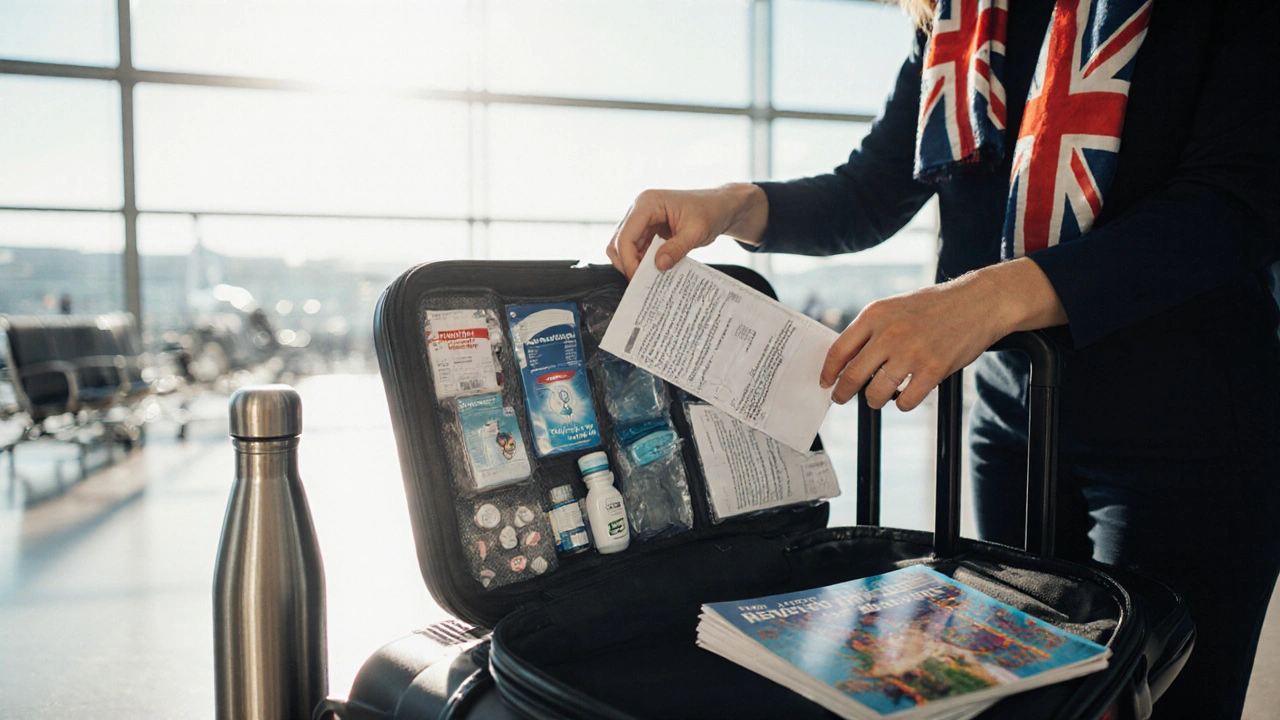Traveling with chronic diarrhea: Simple steps to stay comfortable on the road
If you deal with chronic diarrhea, the idea of packing a suitcase can feel overwhelming. But a good plan can keep you feeling in control, whether you’re hopping on a plane or road‑tripping across the country. Below are practical, no‑nonsense tips that work for most people and can be adjusted to fit your own health needs.
Before you go: Planning and packing
Start with a quick check‑list. Talk to your doctor about any prescription or over‑the‑counter meds you should bring—loperamide, oral rehydration salts, and a probiotic are common choices. Ask for a written note if you need to carry syrups or higher‑dose tablets; it makes airport security smoother.
Pack a small “diarrhea kit” that fits in a side pocket: a few tablets of anti‑diarrheal medicine, a refillable oral rehydration mix, a couple of disposable wipes, and a sealable bag for any soiled items. Keep these items in your carry‑on so you can access them quickly and avoid losing them in checked luggage.
Food is a big trigger, so research your destination’s cuisine ahead of time. Look for places that offer bland options like plain rice, toast, bananas, or boiled potatoes. If you’re staying at a hotel, ask if they can provide a mini‑fridge for storing probiotics or low‑fiber snacks.
Hydration matters more than you might think. Bring a reusable water bottle and consider a small electrolyte powder packet. Even if you’re drinking bottled water, you’ll need extra salts to replace what you lose.
On the road: Managing symptoms
When you’re out and about, listen to your body. If you feel the urge, find a restroom before the situation escalates. Most airports, train stations, and large malls have accessible facilities—use the station maps or ask staff for the nearest one.
Eat slowly and stick to low‑fiber, low‑fat foods until you know how your gut reacts to the new environment. Carry a few crackers or a plain granola bar as a backup snack; they’re easy on the stomach and help prevent sudden hunger that could lead to risky food choices.
If diarrhea strikes, take the anti‑diarrheal tablet as directed, then sip on your oral rehydration solution. Avoid caffeine and alcohol; they can worsen dehydration.
When you reach your destination, locate a pharmacy or a clinic close to where you’re staying. Having a local medical contact helps you get quick advice if symptoms flare up or if you need a prescription refill.
Finally, don’t let fear stop you from enjoying the trip. Most people with chronic diarrhea can travel safely with a solid plan, the right meds, and a bit of flexibility. Keep this checklist handy, stay hydrated, and remember that a quick bathroom break is better than an emergency situation later.
Traveling with Chronic Diarrhea: Essential Precautions and Tips for a Smooth Trip
Learn practical tips to travel smoothly with chronic diarrhea, from packing a medical kit and staying hydrated to choosing safe foods, insurance, and emergency plans.
